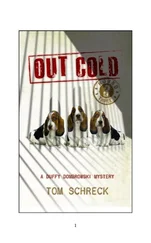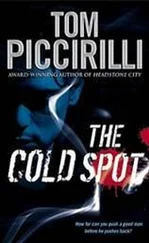my hand and plunged it into the quenching tub with its hiss of steam.
In the smoke-grimed little smithy Tyrkir took breaks from pounding at the glowing metal to tell what he knew of the galdra, the charms and spells that make up the bulk of seidr lore. 'There are hundreds,' he told me. 'Each produces a different result suitable for a different occasion. How effective they are depends on the user's experience and skill. I know only a few, perhaps a couple of dozen, and they are mostly related to my work with metal. I never complete a sword for war, a sea knife for a sailor, or a spearhead for a hunter without reciting the correct galdra for the purpose it will serve. But these are craftsmen's galdra. There are more powerful ones, above all at times of combat. There is one to calm the rage in a warrior's heart, another to sing behind a shield as the charge is launched, which will guarantee that all your comrades-inarms emerge from the fray unscathed, while a third gives the enchanter the quickness to catch an arrow flying through the air. A fourth, if spoken over a goblet of water which is then thrown over a warrior, ensures that he survives the forthcoming battle, perhaps wounded, but alive.'
Tyrkir failed to notice that I was not attracted by martial prowess and muscular feats and stories of bloodshed. To tell the truth I was always a little frightened of my dwarfish mentor and the hard-edged bitterness he sometimes showed when he told the more gory tales. He relished telling me how Volund, the master smith and 'prince of elves', had lured the young sons of King Nidud into his forge and, as they peered into his chest of treasure, lopped off their heads. 'You know why he did that, Thorgils?' Tyrkir asked as he fused a strip of harder steel into the soft iron blade of a sickle to give it a sharper edge. 'Volund did that to revenge himself on Nidud. Volund was so skilled at metalwork that the evil Nidud kidnapped him, then lamed him so he could not escape and forced him to work as a royal goldsmith. Volund bided his time until he could lure Nidud's greedy and stupid sons into his workshop. There he killed them and made splendid jewels from their eyeballs, brooches from their teeth and silver-plated bowls from their skulls. To their mother he presented the jewels, to their sister the brooches and to their father the bowls.' Tyrkir gave a grim smile of satisfaction. 'And in the end he seduced the Princess Bodvild and left her with child, before he cunningly fashioned wings of metal and flew away from his captivity.'
Gudrid was pregnant. People now understood why she had been seasick on the outward voyage and why she had insisted on bringing two serving women with her from Brattahlid. Most of the settlers took her pregnancy as a good omen. It meant that our little colony would flourish and grow. I wanted to be happy for Gudrid, like everyone else, but I was confused and unsure. For most of my young life I had seen myself as Gudrid's true son, and now it seemed that I was to have a rival for her affections.
In the late autumn of that first year in Vinland Gudrid gave birth to a healthy, squalling male child. He was given the name Snorri, which means 'unruly' or 'argumentative', and he was the first of our race to be born in that distant Norse outpost. Perhaps he is the only one ever to be born there. I do not know because for many years I have not had any direct news from Vinland. Nor, I suppose, has anyone else. Instead I have only the memory of the great rejoicing and excitement on the day when Snorri arrived in this world and how Thorfinn, the proud father, gave a birthday feast in our fine new longhouse. Perhaps it was the first stirring of jealousy within me, or perhaps it was my sixth sense that produced a sense of foreboding within me. But that evening, as we all gathered in the longhouse and sat along the side benches and listened to Thorfinn call toasts to celebrate the arrival of our first child, I felt a nagging certainty that those golden early days of our colony were numbered.
EIGHT

THE HERALDS OF our failure came just three days later. It was almost noon on a mild sunny day and the colonists were spread out doing their usual daily tasks, some fishing, a few absent in the forest hunting and tree-felling, the majority working in and around the houses or clearing gardens. The women, I remember, were preparing food, for I recall the smell of venison roasting on a spit over an open fire. One of the builders was up on the roof of a house, checking that the turves were binding together properly to make a watertight seal, when he straightened to ease his back and happened to glance out to sea. He stopped in surprise and shouted, pointing out along the coast. His cry alerted all of us in the settlement and we turned to look. Around the end of the farthest low spit of land a cluster of small boats was approaching. At that distance they looked no more than black needles, but it was quite obvious what they were: Skraelings. Everyone stopped whatever they were doing, and a shiver of apprehension passed through the crowd. It must be remembered that we were farmers and fishermen, not seasoned warriors, and the arrival of these strangers in this isolated land sent a chill of fear down our spines. 'Be as friendly as possible. Act normally,' warned Thorfinn. 'Don't make any sudden movements, but don't let them come too close either. We'll just wait to see what they want.'
The little Skraeling flotilla — there were nine of their skin boats — slowly paddled closer. The boatmen seemed to be as surprised and cautious as we were. They slackened their pace and drifted their boats gently through the shallows, keeping about fifty paces offshore as they watched us, staring curiously. Neither side said a word. There was a tense silence. Then one of the Skraelings stood up in his boat - it was a narrow, trough-shaped vessel, not very well made — and began to wave his arm in circles above his head. In his hand was some sort of blade, which made a low humming sound, halfway between a gentle roar and a mutter.
'What do you think that means?' Thorfinn asked his second-in-command, a man called Thorbrand Snorrisson.
It could be a sign of peace,' he replied, 'They don't seem very hostile.'
'Then we had better respond in the same way,' answered Thorfinn. 'Take a white shield and go into the water up to your knees. Hold up the shield so they can see it clearly.'
A white shield is our standard signal of peace, recognised and used even among the wild Irish and distant German tribes. A red shield displayed means war. Anyhow, the Skraelings seemed to understand the gesture; they gently turned their boats towards us and paddled inshore. We all stood motionless as they touched land, and the men climbed out of their boats and advanced hesitantly up the beach.
We could see that they were exactly like the people that my uncle Thorvald's crew had attacked and killed. The men — there were no women in the party — were dark-skinned and a little smaller than us in stature. They had the same almond-shaped eyes and lank, very black hair worn long and loose, right down to their shoulders. Their cheekbones were high and prominent, and this gave their faces a menacing look. I noticed that their eyes were uniformly dark brown, almost black. They must have been a hunting party because there was very little in the boats except for some hunting spears and nondescript bundles wrapped in rawhide. Thorfinn suspected that they were as startled as we were by the encounter. At any rate, there was a very long silence, while both parties looked one another over, and then the leader of the Skraelings called out something in an unintelligible language and the entire group deliberately got back into their boats, shoved off and paddled away, from time to time looking back over their shoulders.
Читать дальше









